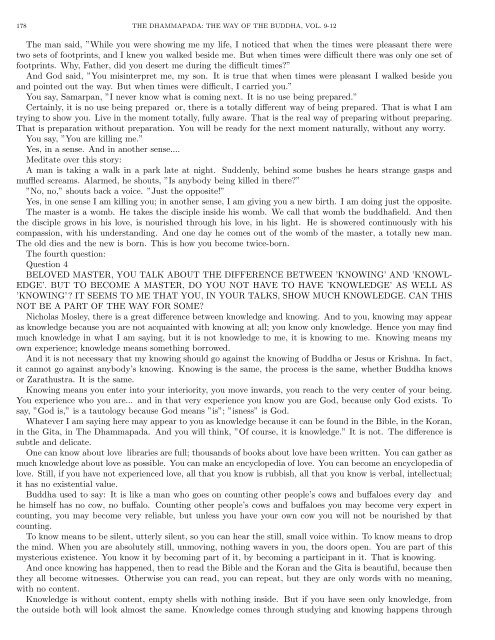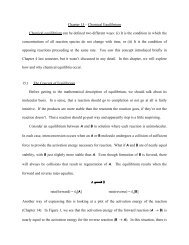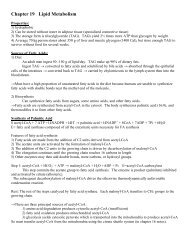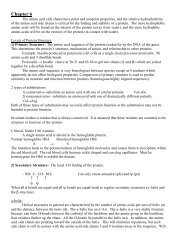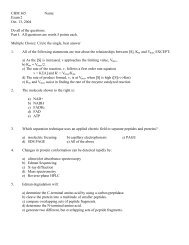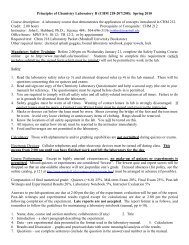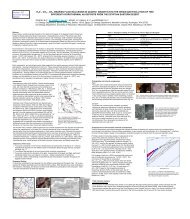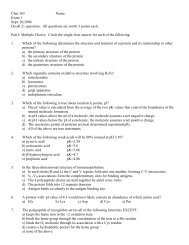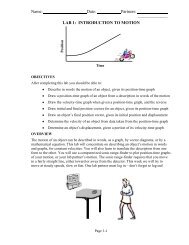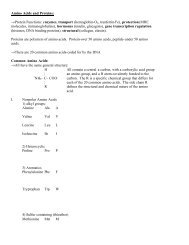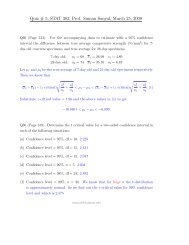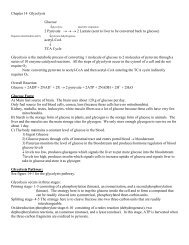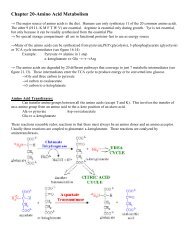THE DHAMMAPADA: THE WAY OF THE BUDDHA, VOL. 9-12 The ...
THE DHAMMAPADA: THE WAY OF THE BUDDHA, VOL. 9-12 The ...
THE DHAMMAPADA: THE WAY OF THE BUDDHA, VOL. 9-12 The ...
You also want an ePaper? Increase the reach of your titles
YUMPU automatically turns print PDFs into web optimized ePapers that Google loves.
178 <strong>THE</strong> <strong>DHAMMAPADA</strong>: <strong>THE</strong> <strong>WAY</strong> <strong>OF</strong> <strong>THE</strong> <strong>BUDDHA</strong>, <strong>VOL</strong>. 9-<strong>12</strong><br />
<strong>The</strong> man said, ”While you were showing me my life, I noticed that when the times were pleasant there were<br />
two sets of footprints, and I knew you walked beside me. But when times were difficult there was only one set of<br />
footprints. Why, Father, did you desert me during the difficult times?”<br />
And God said, ”You misinterpret me, my son. It is true that when times were pleasant I walked beside you<br />
and pointed out the way. But when times were difficult, I carried you.”<br />
You say, Samarpan, ”I never know what is coming next. It is no use being prepared.”<br />
Certainly, it is no use being prepared or, there is a totally different way of being prepared. That is what I am<br />
trying to show you. Live in the moment totally, fully aware. That is the real way of preparing without preparing.<br />
That is preparation without preparation. You will be ready for the next moment naturally, without any worry.<br />
You say, ”You are killing me.”<br />
Yes, in a sense. And in another sense....<br />
Meditate over this story:<br />
A man is taking a walk in a park late at night. Suddenly, behind some bushes he hears strange gasps and<br />
muffled screams. Alarmed, he shouts, ”Is anybody being killed in there?”<br />
”No, no,” shouts back a voice. ”Just the opposite!”<br />
Yes, in one sense I am killing you; in another sense, I am giving you a new birth. I am doing just the opposite.<br />
<strong>The</strong> master is a womb. He takes the disciple inside his womb. We call that womb the buddhafield. And then<br />
the disciple grows in his love, is nourished through his love, in his light. He is showered continuously with his<br />
compassion, with his understanding. And one day he comes out of the womb of the master, a totally new man.<br />
<strong>The</strong> old dies and the new is born. This is how you become twice-born.<br />
<strong>The</strong> fourth question:<br />
Question 4<br />
BELOVED MASTER, YOU TALK ABOUT <strong>THE</strong> DIFFERENCE BETWEEN ’KNOWING’ AND ’KNOWL-<br />
EDGE’. BUT TO BECOME A MASTER, DO YOU NOT HAVE TO HAVE ’KNOWLEDGE’ AS WELL AS<br />
’KNOWING’? IT SEEMS TO ME THAT YOU, IN YOUR TALKS, SHOW MUCH KNOWLEDGE. CAN THIS<br />
NOT BE A PART <strong>OF</strong> <strong>THE</strong> <strong>WAY</strong> FOR SOME?<br />
Nicholas Mosley, there is a great difference between knowledge and knowing. And to you, knowing may appear<br />
as knowledge because you are not acquainted with knowing at all; you know only knowledge. Hence you may find<br />
much knowledge in what I am saying, but it is not knowledge to me, it is knowing to me. Knowing means my<br />
own experience; knowledge means something borrowed.<br />
And it is not necessary that my knowing should go against the knowing of Buddha or Jesus or Krishna. In fact,<br />
it cannot go against anybody’s knowing. Knowing is the same, the process is the same, whether Buddha knows<br />
or Zarathustra. It is the same.<br />
Knowing means you enter into your interiority, you move inwards, you reach to the very center of your being.<br />
You experience who you are... and in that very experience you know you are God, because only God exists. To<br />
say, ”God is,” is a tautology because God means ”is”; ”isness” is God.<br />
Whatever I am saying here may appear to you as knowledge because it can be found in the Bible, in the Koran,<br />
in the Gita, in <strong>The</strong> Dhammapada. And you will think, ”Of course, it is knowledge.” It is not. <strong>The</strong> difference is<br />
subtle and delicate.<br />
One can know about love libraries are full; thousands of books about love have been written. You can gather as<br />
much knowledge about love as possible. You can make an encyclopedia of love. You can become an encyclopedia of<br />
love. Still, if you have not experienced love, all that you know is rubbish, all that you know is verbal, intellectual;<br />
it has no existential value.<br />
Buddha used to say: It is like a man who goes on counting other people’s cows and buffaloes every day and<br />
he himself has no cow, no buffalo. Counting other people’s cows and buffaloes you may become very expert in<br />
counting, you may become very reliable, but unless you have your own cow you will not be nourished by that<br />
counting.<br />
To know means to be silent, utterly silent, so you can hear the still, small voice within. To know means to drop<br />
the mind. When you are absolutely still, unmoving, nothing wavers in you, the doors open. You are part of this<br />
mysterious existence. You know it by becoming part of it, by becoming a participant in it. That is knowing.<br />
And once knowing has happened, then to read the Bible and the Koran and the Gita is beautiful, because then<br />
they all become witnesses. Otherwise you can read, you can repeat, but they are only words with no meaning,<br />
with no content.<br />
Knowledge is without content, empty shells with nothing inside. But if you have seen only knowledge, from<br />
the outside both will look almost the same. Knowledge comes through studying and knowing happens through


